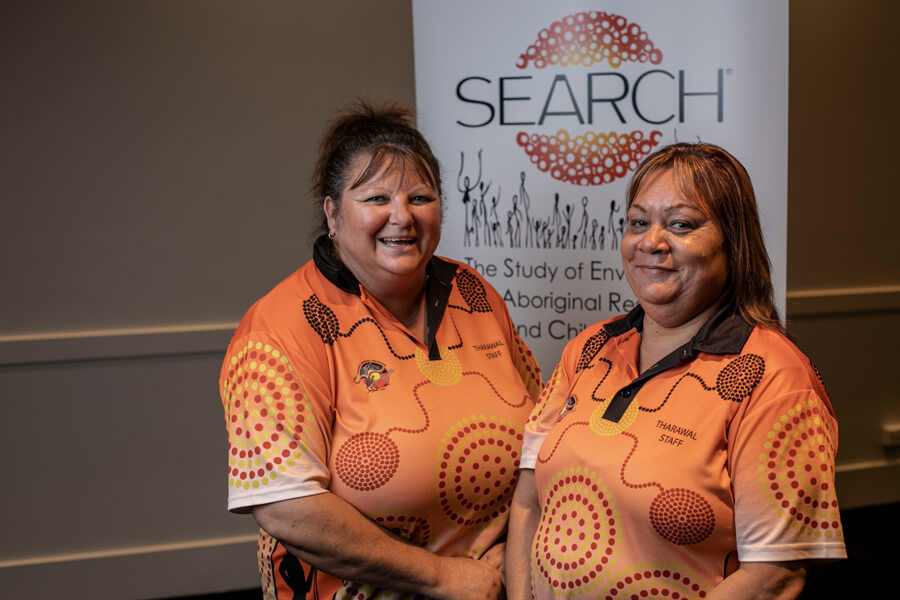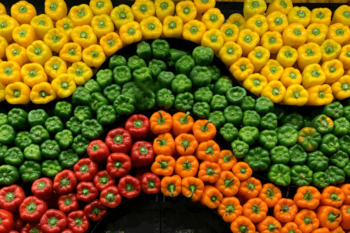Local organisations pledge to tackle urban Aboriginal food insecurity

DATE
TYPE Prevention Centre News
Food insecurity is when families or an individual do not have access to or cannot afford to purchase healthy food, and is a significant problem in Aboriginal communities. Mild to moderate food insecurity has been linked to higher rates of poor diet and nutrition, obesity and chronic disease.
The workshops, led by the Study of Environment on Aboriginal Resilience and Child Health (SEARCH), brought together local organisations with Aboriginal Elders and community members from the Riverina Medical and Dental Aboriginal Corporation (RivMed) in Wagga Wagga and Tharawal Aboriginal Corporation (Tharawal) in Campbelltown (above). Together, they undertook group model building to create a picture of the urban Aboriginal food insecurity system in their area.
The stakeholders’ input was presented as a causal loop diagram of food insecurity, and the data is currently being analysed to develop a food security framework to help strengthen local food systems. The project team will then work with RivMed and Tharawal and other key partners in both communities to identify and implement a multi-strategy program to improve food security.

RivMed CEO Tangerene Ingram told a packed session in Wagga Wagga that food insecurity is becoming a more serious issue throughout NSW due to cost of living increases.
“There is the rising cost of rent, electricity, gas, fuel and parents are struggling to ensure their kids are cared for and their needs are met, and there are all these other costs associated with raising kids – phone, internet, clothes – and on top of that you have to make sure there is food on the table. It all comes back to money,” Ms Ingram said.
“The stakeholders in the room are all out there and working with families to ensure they have food, they know what’s going on and how we can help to make a difference for our community.”
The group model building sessions built upon the information previously collected in individual interviews with local Aboriginal families, Elders and other organisations to identify the complex factors contributing to food insecurity.

The Wagga Wagga community said that lack of action and coordination between agencies was leading to duplication and confusion about available food subsidy services. In response, the Red Cross offered to coordinate regular meetings of all the stakeholders to improve this situation.
In Campbelltown, the community described the impact of low incomes and unemployment that influenced their ability to budget and afford healthy food. The reliance on convenience food outlets that were closer to home and easier to get to than healthier supermarkets had a big impact on communities’ food preferences and choices.
Following the meetings, a number of stakeholders agreed to work together to action initiatives that would help address local food security, for example, to provide community education around affordable healthy food choices, meal planning for families, and budgeting and financial literacy support to allow limited budgets to go further.

Project lead Associate Professor Sumithra Muthayya of the Sax Institute said that community leadership would be crucial in developing effective, sustainable ways of improving food security, diet and nutrition.
“The drive and willingness from people who attended our workshops mean we will be able to find solutions that work,“ she said.
The Prevention Centre has also produced a podcast describing some of the early findings of this project, with Darryl Wright, CEO of Tharawal Aboriginal Corporation, and discusses local food insecurity in Campbelltown.



